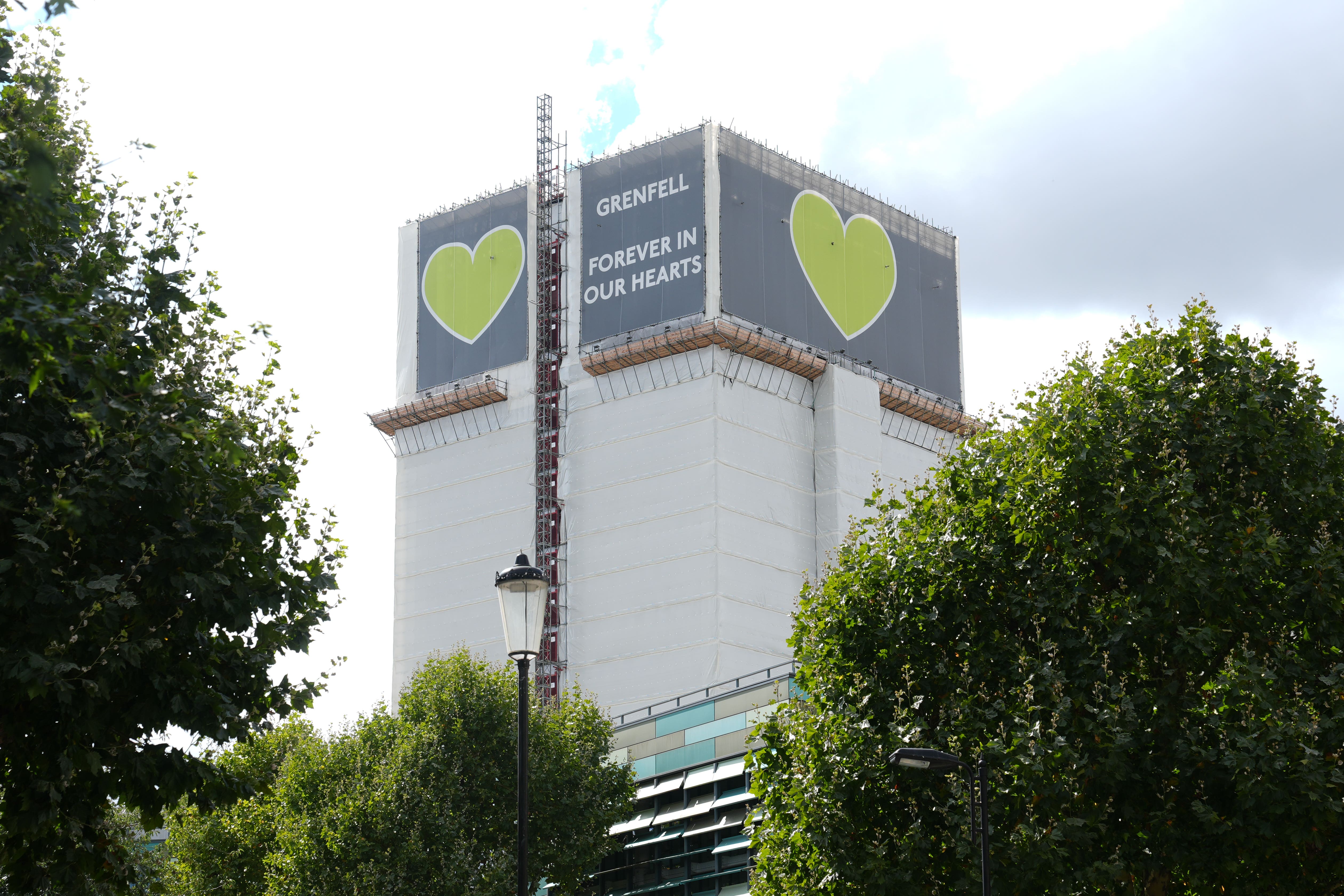‘Cultural shift’ needed to improve attitudes to social housing tenants – Rayner
The Grenfell Tower report concluded that a landlord organisation lost sight of the fact residents ‘depended on it for a safe and decent home’.

Your support helps us to tell the story
From reproductive rights to climate change to Big Tech, The Independent is on the ground when the story is developing. Whether it's investigating the financials of Elon Musk's pro-Trump PAC or producing our latest documentary, 'The A Word', which shines a light on the American women fighting for reproductive rights, we know how important it is to parse out the facts from the messaging.
At such a critical moment in US history, we need reporters on the ground. Your donation allows us to keep sending journalists to speak to both sides of the story.
The Independent is trusted by Americans across the entire political spectrum. And unlike many other quality news outlets, we choose not to lock Americans out of our reporting and analysis with paywalls. We believe quality journalism should be available to everyone, paid for by those who can afford it.
Your support makes all the difference.A call has been made for a “cultural shift” to ensure people in social housing are not seen as “lesser” or in some cases even “second-class” citizens, following the Grenfell Tower Inquiry’s final report.
Deputy Prime Minister Angela Rayner, who lived in social housing as a child and into her adulthood, branded such attitudes “disgraceful” and said tenants must be taken seriously and feel empowered to raise necessary issues as they arise.
Sir Martin Moore-Bick’s report, published on Wednesday, noted that in the aftermath of the blaze which killed 72 people “certain aspects of the response demonstrated a marked lack of respect for human decency and dignity”.
Sir Martin said that, before the fire, some occupants regarded Kensington and Chelsea Tenant Management Organisation (KCTMO), which managed the tower, as a “bullying overlord” and a “toxic atmosphere” was “fuelled by mistrust on both sides”.
The report concluded the KCTMO “lost sight” of the fact that residents “depended on it for a safe and decent home”, and it regarded some as “militant troublemakers”.
Its findings prompted Prime Minister Sir Keir Starmer to say tenants of the high-rise block were treated as “second-class citizens” and that the report should force people to reflect on the state of social justice in the country.
As someone who was a social tenant all of my childhood and into my adulthood, I completely appreciate that there is a culture in this country where they’re considered lesser people, and that’s disgraceful
Ms Rayner, who is also Housing Secretary, said the report highlighted the “disgraceful” treatment of social tenants.
She told BBC Radio 4’s Today programme there has to be a “cultural shift to empowering people”.
She said: “I think the people of Grenfell were dismissed and not listened to and were not empowered as tenants.
“And I think that we’ve got to make sure that greed and profit is not put above safety.”
She added: “There is a total imbalance for tenants at the moment, and social tenants in particular have a stigma attached to them.
“And as someone who was a social tenant all of my childhood and into my adulthood, I completely appreciate that there is a culture in this country where they’re considered lesser people, and that’s disgraceful.”
You can see how system pressures and budgetary pressures are normalising behaviours...and that is creating a kind of second-class citizen attitude towards social tenants
Housing ombudsman Richard Blakeway said systems and processes “can be kind of callous and uncaring” and that financial pressures have normalised in some cases “absolutely unacceptable” behaviour.
He said criteria for a “decent home” must be defined for the 21st century.
The Government’s decent homes standard helps to set the minimum levels required for social homes.
Mr Blakeway told the Today programme: “There is a real need to state ‘what is a decent home’… in the 21st century, and how do you invest in that and produce something that’s going to support growth and going to support life changes.”
He said he saw a property last week that was “technically a decent home” but the people there described it as “appalling”, with a person having to be in the foetal position to use the bath.
He added: “I think one of the things that comes across in my case work, very strongly, is how systems and processes can be kind of callous and uncaring, and that’s not necessarily the people who are operating them.
“You can see how system pressures and budgetary pressures are normalising behaviours which, when you step back, you say, well, that is absolutely unacceptable, and that is creating a kind of second-class citizen attitude towards social tenants.”
In his statement to Parliament shortly after the report came out, Sir Keir said it should be “a moment to reflect on the state of social justice in our country”.